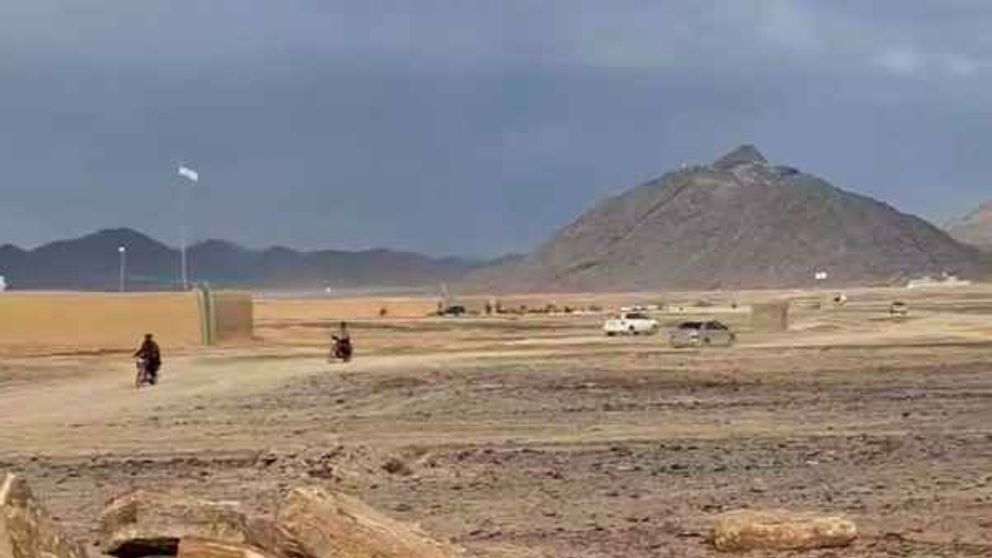England will play Afghanistan in the Champions Trophy on Wednesday, 26 February in Pakistan.
It is a fixture that has caused plenty of controversy in the build-up, with some saying Jos Buttler’s side should boycott the match in response to the Taliban’s actions in Afghanistan.
Prime Minister Sir Keir Starmer is among those to have had their say. BBC Sport looks at the background and both sides of the debate.
What is the background?
The issue has come to light following the Tailban’s assault on women’s rights in Afghanistan.
Female participation in sport has effectively been outlawed since the group returned to power in 2021.
Women were banned from universities, parks and sports. The Taliban raided the homes of female athletes and many women’s cricketers fled Afghanistan for their safety.
The International Cricket Council (ICC) requires its full members, of which Afghanistan is one, to have a national women’s team, but the men’s team has retained its Test status, reached the semi-finals of the T20 World Cup last year and qualified for the latest global tournament, the Champions Trophy.
In January, a cross-party letter, signed by nearly 200 UK politicians, was sent to the England and Wales Cricket Board (ECB) calling for England to refuse to play the match.
In response, the ECB called for unified action led by the ICC.
ECB chief executive Richard Gould wrote to the global governing body calling for more action over what he called “gender apartheid”.
He stopped short of asking for a boycott but did ask the ICC to place an “immediate condition” on Afghanistan’s full member status to provide women’s cricket by a certain date.
England have played Afghanistan twice since the Taliban takeover – both at world events run by the ICC. They have not scheduled any bilateral series, which are organised by national cricket boards, against them.
As it stands this match will go ahead.
What do those in favour of a boycott say?
The original letter was written by Labour MP Tonia Antoniazzi, and signed by others including Reform UK leader Nigel Farage, and former Labour leaders Jeremy Corbyn and Lord Kinnock.
It urged England to boycott the match to “send a clear signal” that “such grotesque abuses will not be tolerated”.
“The power lies in the team,” said Antoniazzi – the MP for Gower. “How big is England cricket? It’s huge.
“They have a huge standing in the world of sport and they do have an influence, and I want them to realise that that influence is what they should use to make a difference.”
South Africa, another team involved in the Champions Trophy, were banned from competing in sport because of apartheid in the late 20th Century.
South Africa are in Group B with Afghanistan, Australia and England. The Proteas will face Afghanistan on Friday, 21 February in Pakistan.
“Cricket South Africa, the federations of other countries and the ICC will have to think carefully about the message the sport of cricket wishes to send the world, and especially the women in sports,” said South Africa sports minister Gayton McKenzie.
“If it was my decision, then it certainly would not happen.”
What do others say and why are Afghanistan’s men allowed to compete?
Starmer also called for unified action but stopped short of supporting a boycott, despite calls from within his party.
Culture Secretary Lisa Nandy later said the game should go ahead, adding boycotts are “counterproductive”, while England captain Buttler said in January he does not think a boycott is “the way to go about it”.
“They deny sports fans the opportunity they love and they can very much penalise the athletes and sportspeople who work very, very hard to reach the top of their game,” Nandy told the BBC in January.
Criticism of the ICC’s position has continued. Its stance is that current men’s players should not be punished for Afghanistan government policy.
It also wants to use its position and the sport of cricket to influence change in the country.
The ICC set up a working group after the Taliban regained power to tackle the issue and the group has met with representatives of the government.
But the group and the ICC as a whole has also been widely criticised.
A group of Afghan women’s cricketers who fled to Australia say the ICC has done “nothing” for them.
They took part in an exhibition match in Melbourne last month and want to be recognised as a refugee team.
Have there been other boycotts in sport?
Boycotts in sport, and cricket, are not new.
The most famous example is the banning of South Africa but, at the height of the Cold War, the United States also led a boycott of the 1980 Summer Olympics in Moscow in protest of the Soviet War in Afghanistan.
In 2003, England were encouraged by the UK government not to travel to Zimbabwe for a World Cup match because of Robert Mugabe’s ruling regime.
In the end they did not travel because of security concerns and forfeited the match, which played a part in their elimination.
 Afghanistan Peace Campaign
Afghanistan Peace Campaign
